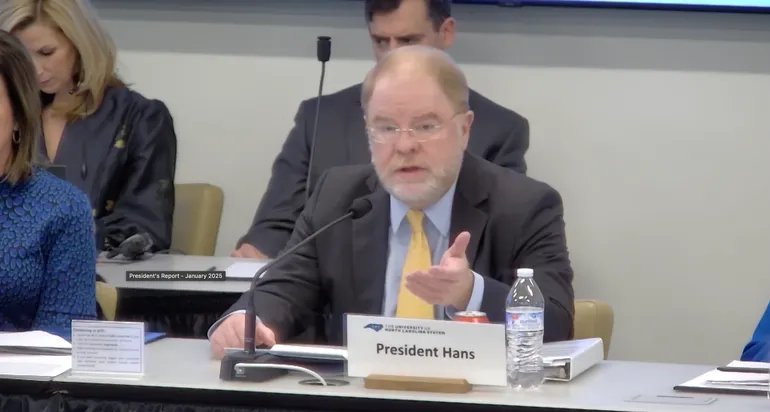In This Article
The U.S. government has recently accused several prominent figures of mortgage fraud. A judge recently blocked President Donald Trump’s attempt to fire the Federal Reserve’s Lisa Cook from its Board of Governors, California Senator Adam Schiff in under investigation from the Department of Justice, and New York Attorney General Letitia James is in the midst of a grand jury probe—all for allegedly having claimed more than one home as a primary residence to receive a lower interest rate.
Guilty or not, bending the truth during a mortgage application is nothing new. “Liar loans” were front-page news during the 2008 financial crisis and led to the passage of the Dodd-Frank Act to make mortgage applications more rigorous.
Despite that, high interest rates and low supply, along with tightening credit standards, saw an 8.3% year-over-year increase in fraudulent mortgage applications in 2024, according to CoreLogic’s Mortgage Fraud Report (CoreLogic is now Cotality). The year-over-year trend for mortgage fraud in the first quarter of 2025 is up 7.3%.
Different Types of Mortgage Fraud
What constitutes mortgage fraud? How many people have told a white lie here and there, claiming a personal residence, only to use it as an investment within a few months, or bump up their income to qualify for a loan?
Lying on a mortgage application can have significant consequences. “If a mortgage is found to have fraud, the lender may have the right to require the mortgage to be repaid in full right away,” Bridget Berg, senior director of fraud solutions at CoreLogic, told Bankrate. “If [the borrower] can’t access funds to pay off the loan, they could lose the home to foreclosure.”
According to Bankrate, there are many different types of mortgage fraud, including these five main ones.
1. Origination fraud
Origination fraud is when a loan officer/broker or borrower misrepresents their qualifications to receive a better loan, either with a lower interest rate or a higher loan amount.
“Real estate agents and loan officers may suggest or facilitate misrepresentations to protect their commissions,” Berg says. “Sometimes the borrower is not aware that information is being falsified.”
2. Occupancy fraud
Occupancy fraud is common among real estate investors of small multiunit properties. An investor gets an FHA loan to be an owner-occupant in a two-to-four-unit building, only to rent out all units shortly after closing.
3. Identity fraud
Identity fraud is considered egregious—using someone else’s identity or Social Security information to obtain a loan. The unsuspecting person whose identity has been stolen is then held responsible for the payments. The guilty party could face a 30-year prison sentence if caught.
4. Churning
This isn’t just what your stomach will do if you are found guilty of fraud, but a move used by mortgage brokers and loan officers to get two commissions for the price of one. They will encourage a borrower to buy a home at a specific interest rate, and after they close, encourage them to refinance to get a lower rate. A typical scenario for investors involves obtaining a hard money loan to purchase a property, and then refinancing it shortly afterward. The borrower is on the hook for two sets of closing costs, while the loan officer counts their cash.
5. Appraisal fraud
This kind of fraud was rampant prior to the 2008 financial crisis. Appraisers routinely inflated the price of properties to get more business, and lenders turned a blind eye to get more loans, while investors, title companies, and attorneys were all complicit.
Inflated appraisals were often at the heart of wholesaling and flipping deals, which were later investigated in the wake of the foreclosure crisis. Investors frequently used fake buyers, known as straw buyers, to facilitate deals, with the fake buyer receiving a kickback for their role, before defaulting on the loan.
The Different Degrees of Mortgage Fraud
Obviously, stealing someone’s identity is considered a far more serious case of fraud than bumping up your income a little to qualify for a loan or a lower interest rate. In between, there are many shades of gray.
For example, in the case of Adam Schiff, he asserts that he was transparent and received approval to label both his properties as his primary residence. If so, convicting him of fraud will be far from easy.
Many real estate investors purchased homes with an FHA mortgage intended for owner-occupants, only to rent them out later. FHA guidelines require that an owner-occupant must live in a house with an FHA mortgage for 12 months before they can move out and rent it.
In reality, no one is coming to check the date that you moved out and a tenant moved in. However, if someone wanted to investigate you, this could be perceived as fraud, along with many other types of infractions.
“Despite these high-profile accusations, mortgage fraud is ‘relatively rare,’” Matt Seguin, senior principal for fraud solutions at Cotality, told MarketWatch. The analytics company found that only 0.86% of mortgage applicants—about one in 116—carried the risk of mortgage fraud as of the second quarter of 2025.
The MarketWatch article adds that the Trump administration is stepping up its efforts to clamp down on mortgage fraud by partnering with artificial intelligence (AI) company Palantir, according to Fannie Mae, which backs 25% of U.S. mortgages.
You might also like
Hiding Your Data
If you’re worried you might have committed mortgage fraud in the past—albeit innocently—there are ways to hide your data, but that is by no means proof.
Some mortgage data is public: the borrower’s name, lender, property address, and the original loan amount, as well as any refinancing and payoffs. That information is recorded in the county clerk’s office as a deed of trust.
Also included is an additional document outlining the user’s intentions for the property, sometimes referred to as a rider. This information can be found online at the county’s website. Tax information and homestead exemption—the latter included for primary residences—is also noted. Two homestead exemptions would be a red flag for anyone conducting an investigation.
DeleteMe is a service that promises to delete personal data from Google search engines. Rob Shavell, the company’s CEO, told the New York Times that the site often gets custom requests to remove mortgage data. LLCs are often considered a tool to conceal a property’s ownership, but they do not remove the mortgage data associated with the address.
Other companies performing a similar service on roving online information include Kanary and OneRep. Google also has a “Results about you” tool that allows consumers to request the removal of their personal phone number, home address, or email address from search data.
Forensic Searches Can Unearth Troves of Information
That said, hiring a company to remove your online profile doesn’t guarantee it will be inaccessible to others.
“For identity theft purposes, it’s like tiles in a mosaic. The more tiles you have, the more the impersonation can be accurate,” Adam K. Levin, a consumer affairs advocate and former director of the New Jersey Division of Consumer Affairs, who co-hosts a cybersecurity podcast, told CNBC.
The Penalties for Mortgage Fraud
The penalties for committing mortgage fraud vary, depending on the severity of the crime. The stats are sobering. In 2021, the most recent data available, 74% of mortgage fraud offenders served prison time, with an average sentence of 14 months, according to the United States Sentencing Commission.
However, the fraud must be proven, and for residential properties owned by owner-occupants, the burden of proof needs to be overwhelming. “To have an inaccurate mortgage filing is not the same thing as having a fraudulent one,” Richard Briffault, an expert in administrative law and public policy at Columbia Law School, told the Washington Post.
Final Thoughts
Unsurprisingly, the rate of mortgage fraud committed by real estate investors is far higher than that committed by owner-occupants, according to a recent Philadelphia Fed working paper by Ronel Elul, Aaron Payne, and Sebastian Tilson, highlighted by National Mortgage Professional (NMP), due to the amount of verifiable personal data a homeowner must supply. NMP says that one-third of all investors commit mortgage fraud.
With a heightened emphasis on investor fraud amid the housing crisis, being tempted to falsify your information is simply not worth the risk.



























